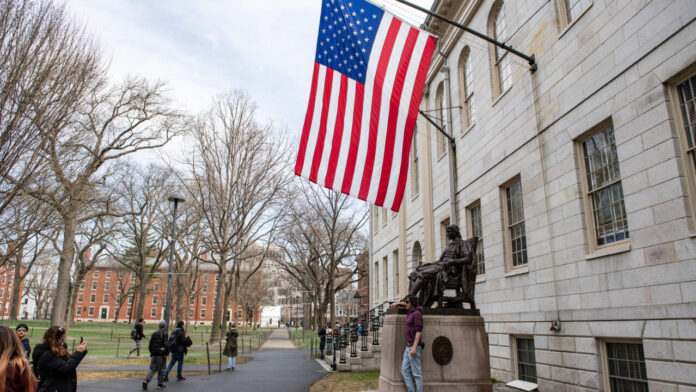Growing concern over student visa revocations in the United States has prompted many international students, including Nigerians, to reconsider studying there. This shift comes after the U.S. government, under former President Donald Trump’s renewed influence, canceled hundreds of student visas and threatened deportation for students involved in pro-Palestinian campus protests.
Reports indicate that more than 130 international students have filed a lawsuit accusing the U.S. government of unlawfully canceling their visas and putting their legal residency at risk. These students argue that their freedom of expression is being punished, especially at institutions like Columbia and Harvard, which have come under scrutiny for allegedly allowing anti-Semitic protests.
The fear of being penalized for personal beliefs or social media activity has already discouraged some students from even setting foot in the U.S. German student Tariq Kandil, who was offered an exchange semester at the University of California, Davis, declined the opportunity due to fear of surveillance and possible detention. Kandil, who had shared posts critical of Trump and voiced support for Palestine online, said he didn’t want to enter a country where he might have to self-censor to stay safe.
His name, he believes, could draw extra attention from border officials. “Tariq Kandil isn’t a typical name when you come from Europe,” he said, adding that the idea of facing arrest or deportation simply for expressing personal views was enough to walk away from the opportunity.
Another student, Rania Kettani from Morocco, decided not to pursue a U.S. master’s degree after hearing about the recent visa cancellations. She had previously studied at New York University and participated in protests. Now, she fears such actions could cost her both her education and legal status. “I don’t want to live and study in fear,” she said.
Despite these concerns, some students remain cautiously optimistic. Naveen, a 26-year-old who preferred to use a pseudonym, is still applying for a U.S. visa after being accepted into a university. While he acknowledges the atmosphere feels “a bit hostile,” he believes the authorities are mostly targeting those who break immigration laws. He hopes the environment will improve in the coming years and looks forward to contributing positively to the U.S. economy.
According to official reports, over 1.1 million international students were enrolled in American colleges and universities in the 2023–2024 academic year—a record high. However, with federal funding being cut for some schools and immigration officers directed to act against student protesters, the climate for foreign students is changing fast.
For many, the risk now feels too personal. The promise of quality education and opportunity in the U.S. is no longer enough to outweigh the fear of surveillance, visa loss, or deportation. As new policies unfold, future applicants are left to weigh their academic dreams against an uncertain and increasingly tense landscape.

